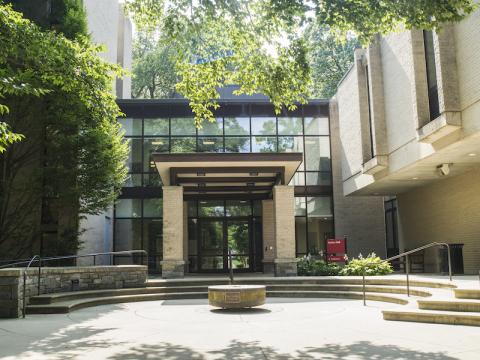90 minutes with German Intertitles and English Subtitles.
The City Without Jews, (Die Stadt ohne Juden) H. K. Breslauer’s 1924 silent masterpiece, is the tragicomic story of the fictional Austrian city of “Utopia”, which becomes a dystopia when it expels its diverse and thriving Jewish population.
Based on the bestselling novel by Hugo Bettauer, The City Without Jews was produced two years after the book’s publication and, tragically, shortly before the satirical events depicted in the fictional story transformed into all-too-horrific reality. All complete prints were thought to be destroyed, but thanks to the discovery of a nitrate print in a Parisian flea market in 2015, this “lost” film can once again be appreciated in its unfortunately ever-relevant entirety.
The story follows the political and personal consequences of an anti-Semitic law passed by the National Assembly of “Utopia” forcing all Jews to leave the country. At first, the decision is met with celebration, but when the citizens of Utopia eventually come to terms with the loss of the Jewish population – and the resulting economic and cultural decline – the National Assembly must decide whether to invite the Jews back. Though darkly comedic in tone and stylistically influenced by German Expressionism, the film nonetheless contains ominous and eerily realistic sequences, such as shots of freight trains transporting Jews out of the city. The film’s stinging critique of Nazism is part of the reason it was no longer screened in public after 1933.
Violinist/composer Alicia Svigals is the world's leading klezmer fiddler and a founder of the Grammy-winning Klezmatics. She has performed with and written for violinist Itzhak Perlman, and has worked with the the Kronos Quartet, playwrights Tony Kushner and Eve Ensler, poet Allen Ginsburg, Robert Plant and Jimmy Page of Led Zeppelin, Debbie Friedman and Chava Albershteyn. Svigals was awarded a Foundation for Jewish Culture commission for her original score to the 1918 film The Yellow Ticket, and is a MacDowell fellow. Her CD Fidl (1996) reawakened klezmer fiddle tradition. Her newest CD is Beregovski Suite: Klezmer Reimagined, with jazz pianist Uli Geissendoerfer—an original take on long-lost Jewish music from Ukraine.
Pianist/composer Donald Sosin grew up in Rye, New York and Munich. Sosin received the Lifetime Achievement Award from the Denver Silent Film Festival, and the Best Original Film Score award by the 2022 Mystic Film Festival. He has performed his scores for silent films, often with his wife, singer/percussionist Joanna Seaton, at Lincoln Center, MoMA, BAM, the National Gallery, at major film festivals in New York, San Francisco, Telluride, Hollywood, Yorkshire, Pordenone, Bologna, Shanghai, Bangkok, Berlin, Vienna, Moscow, and Jecheon, South Korea and many college campuses. He has worked with Alexander Payne, Isabella Rossellini, Dick Hyman, Jonathan Tunick, Comden and Green, Martin Charnin, Mitch Leigh, and Cy Coleman, and has played for Mikhael Baryshnikov, Mary Travers, Marni Nixon, Howie Mandel, Geula Gill, and many others. He records for Criterion, Kino, Milestone, Flicker Alley and European labels, and his scores are heard frequently on TCM. He has had commissions from MoMA, EYE Amsterdam, Deutsche Kinemathek, L'Immagine Ritrovata, the Chicago Symphony Chorus, the San Francisco Chamber Orchestra and the Jerusalem Symphony Orchestra. He lives in rural Connecticut with his family.
Generously supported with a grant from the Sunrise Foundation for Education and the Arts. Read more about the artists and the film.
This event is co-sponsored by the Haverford and Bryn Mawr German Studies departments.
